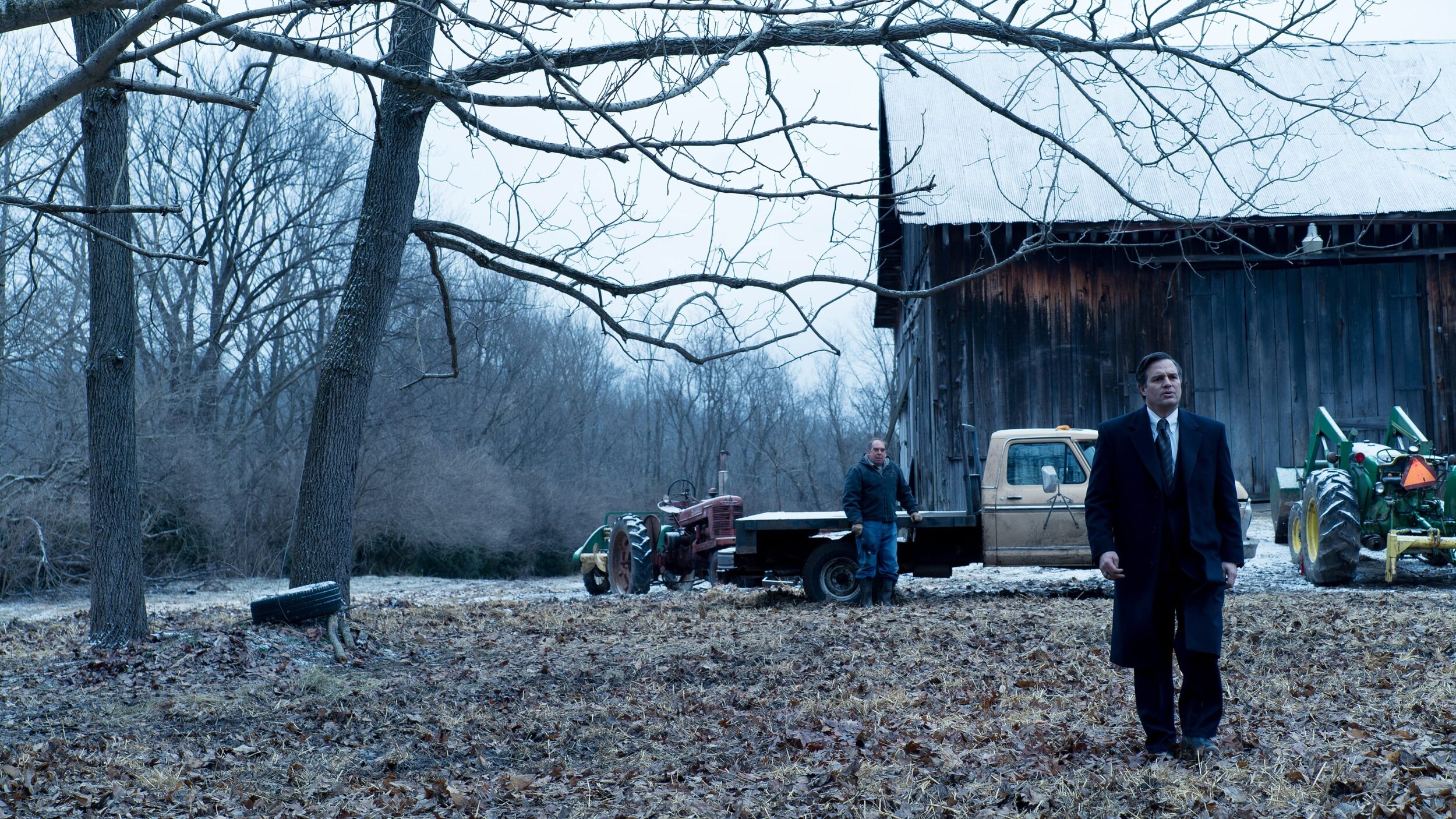Dark Waters
DARK WATERS (Mark Ruffalo) - Focus Features
How does one critique a well-meaning film that is important — almost vital — to see but ultimately suffers from an exceedingly weak execution? That is the issue with Todd Hayne’s Dark Waters, which tells the truly fascinating story of attorney Robert Bilott’s investigation into the deaths of a West Virginian farmer’s cattle and eventually leads to a confrontation with one of the largest corporations in the world. It is a riveting premise that has global consequences so how is it so bland?
Dark Waters stars a doughy Mark Ruffalo as Bilott in a performance so uninspired that one can almost tangibly feel his disinterest in part. Though it initially was presented as Ruffalo’s first major push for an Oscar since Spotlight, he quickly gives the impression that he does not even want to be there. He plays every scene so one-note that the other characters have to tell him, and the audience, that he is becoming increasingly stressed as the film wears on. It almost feels like he was sold on the role purely as a brief respite from playing the big green Avenger and not for any connection to the material.
Supporting Ruffalo’s drab Bilott is Anne Hathaway in an almost comically stereotypical role as his wife, Sarah. Though Hathaway tries her best, she cannot rise above screenwriters Mario Correa and Matthew Michael Carnahan’s script, which casts her as the nagging and emotional spouse of the hero who cannot — or will not — comprehend how vital her husband’s work is. It feels almost criminal to saddle the Oscar-winning Hathaway with such a thankless role and it is telling that the screenplay includes a mid-film mea culpa in a scene where Sarah loudly admonishes another character by saying, “do not talk to me like I'm the wife!”
The rest of the cast do fine work with their somewhat one-dimensional characters who can all be distilled down to a single adjective and noun pairing: Bill Camp’s concerned rancher, Tim Robbin’s understanding boss, Victor Garber’s heartless businessman, etcetera. This, again, is a fault of the bland script rather than the actors themselves. Granted, a special mention goes to Camp, who is able to create some genuinely affecting moments as the owner of the dying cattle who knows he is in over his head but is resolute in his belief that the responsible parties must be brought to justice.
DARK WATERS (Mark Ruffalo) - Focus Features
Nevertheless, like the toxic chemicals found into Parkerburg’s river, all of the ailments of Dark Waters can be followed back to one source: Correa and Carnahan’s screenplay. Their adaptation of Nathaniel Rich’s 2016 article “The Lawyer Who Became DuPont’s Worst Nightmare” feels colder and more hollow than merely reading about the scandal on a Wikipedia page. They consistently squander the inherent tension and emotion by revealing plot points and character details in the most convenient way possible.
Dark Waters has been consistently compared to Erin Brockovich but the only similarity is in the general subject matter. It is a far less successful film than Steven Soderbergh’s 2000 Best Picture Nominee. In fact, focusing solely on Bilott and the legal aspects of the DuPont controversy may have been the less inspired choice than the true stories of those most directly affected. Seeing everything that happens to this low-income town through the eyes of an upper-class lawyer keeps the audience at arm’s length from the real terror of what DuPont allowed to occur. That is except for one scene, towards the end of the film, that includes a cameo from one of the real-life people whose life was irreversibly altered by the scandal. The entire moment takes all of ten seconds but is by far the most memorable of the film. It is a brief glimpse of what Dark Waters could have and should have been.
Regardless of how lacklustre the final product is, Dark Waters is a film that should be seen, purely based on the frightfully remarkable story it tells. It does not shy away from the more disturbing details of the story and truly aims to speak truth to power. It just would have been better if it spoke those truths more eloquently.
Dark Waters is released December 6th in the U.S. 2019 and February 28th 2020



